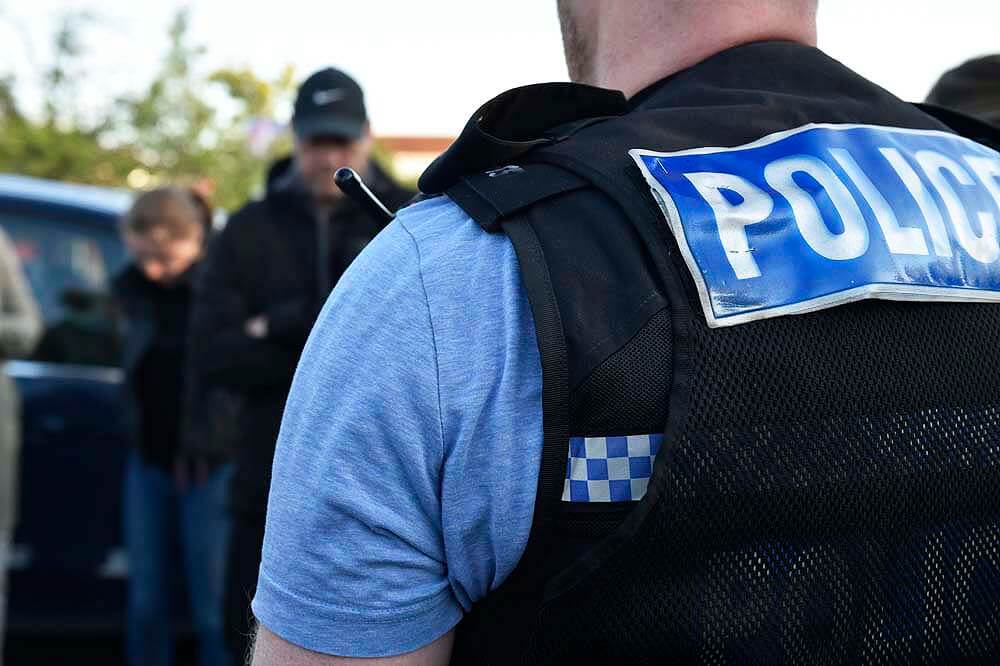Anti-social behaviour (ASB) is defined as ‘behaviour by a person which causes, or is likely to cause, harassment, alarm or distress to persons not of the same household as the person’ (Anti-social Behaviour Act 2003 and Police Reform and Social Responsibility Act 2011).
What is anti-social behaviour?
There are three main categories for anti-social behaviour, depending on how many people are affected:
- Personal anti-social behaviour is when a person targets a specific individual or group.
- Nuisance anti-social behaviour is when a person causes trouble, annoyance or suffering to a community.
- Environmental anti-social behaviour is when a person’s actions affect the wider environment, such as public spaces or buildings.
Thames Valley ASB Mediation Service

In July 2024, Matthew Barber announced the Thames Valley Anti-Social Behaviour (ASB) Mediation Service which is being delivered by Alternatives to Conflict (previously known as Mediation Bucks) and available to residents across Berkshire, Buckinghamshire, Oxfordshire and Milton Keynes.
The Police and Crime Commissioner has provided funding of £60,000 annually to Alternatives to Conflict for a period of 3 years (April 2024 – March 2027). There is an option to extend the service at the end of the period by up to two years.
Mediation provides an independent support service and can offer a solution when there is no clear course of action open to a statutory agency, such as the police or local authority. It also represents an alternative to court proceedings and intervention by statutory agencies.
Find out more by visiting the news item on our website.
Anti-social behaviour Case Review
The Anti-Social Behaviour, Crime and Policing Act 2014 introduced a Case Review process for victims of persistent anti-social behaviour.
ASB Case Review’s (Community Trigger) give victims, or victims’ representatives the right to ask local agencies to review how they have responded to previous ASB complaints and considers what further actions might be taken where the behaviour persists. It adopts a partnership and problem-solving approach to design a new action plan aimed at resolving the issue/s.
To be eligible for an anti-social case review, you must meet the threshold set in your area which must include the frequency of complaints, the effectiveness of the response and the potential harm to the victim or victims making the complaint.
Applying for an ASB Case Review
Your local council will be able to tell you more about ASB Case reviews where you live.
For further information and to apply for an ASB Case Reviews (Community Trigger) please see the following links to local council websites:
If you’re unsure of your local council please visit Find your local council – GOV.UK (www.gov.uk)
Find out more about how an anti-social behaviour case review works by watching this video produced by the Office of the PCC for Gloucestershire.
Crimefighters Strategy
Tackling anti-social behaviour forms an important part of Matthew Barber’s Crimefighters Strategy, which was launched earlier this year to strengthen local policing and build the trust of all of our communities.
Too often anti-social behaviour is seen as low level and unimportant; not scoring highly enough on any harm matrix. Nevertheless, we are aware that persistent anti-social behaviour can blight communities, create a climate of fear and soon lead to much more serious crime. Through the funding provided by the PCC, and the strong participation by the police in Community Safety Partnerships, we have the opportunity to use a wide range of tools, beyond just police powers, to tackle anti-social behaviour.
We have seen through Operation Deter, Thames Valley’s no-nonsense approach to tackling knife crime, that it is not just possible to deliver swift justice, but also that it has significant impact in improving public confidence and providing a deterrent. The same approach can be taken in dealing with anti-social behaviour and other areas of neighbourhood crime. Acting swiftly, embracing new opportunities being developed for reparative justice, and clearly communicating positive outcomes must be part of the approach taken to restore confidence.
To find out more about how the Crimefighters Strategy will tackle anti-social behaviour, please visit the dedicated Crimefighters webpage.
Report anti-social behaviour
Anti-social behaviour takes many forms, from aggressive, noisy or abusive behaviour to neighbourhood disturbances involving drugs or animals.
If you’ve witnessed anti-social behaviour, please report it to Thames Valley Police, using their online reporting tool.
Support organisations
There are a number of organisations which are able to provide support to victims of anti-social behaviour:
- Victims First – Free emotional and practical support for all victims and witnesses of crime, as well as family members of victims.
- ASB Help – A charity in England and Wales providing online advice and support to victims of anti-social behaviour.
- Supportline – A confidential telephone helpline offering emotional support to anyone on any issue, but particularly aimed at those who are socially isolated, vulnerable, at risk groups and victims of any form of abuse. Helpline 01708 765200
